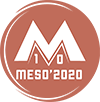The spread of the Neolithic from the original Near Eastern heartland is a process that combines demic movements (of settlers) with possible acculturations of Mesolithic hunter-gatherers. This westward diffusion did not take place in empty territories but which were, on the contrary, more or less densely populated by native groups. If the first models of the seventies insisted on the regularity of the diffusion, the ‘wave of advance', those recently developed insist on the arrhythmia of the process. It can be very rapid or, on the contrary, can stop for several centuries. These slowdowns are sometimes interpreted as regional resistance by groups of aboriginal hunter-gatherer groups that are more dense. In the Mediterranean area, it is also known that the sea is a possible vector of acceleration, like with the model of ‘leapfrogs' diffusion. On the contrary, the more mountainous or less fertile areas may have acted as a brake on this expansion.
On the basis of some of the simplest environmental and anthropological constraints, this communication proposes an initial approach to this process on the scale of the Mediterranean basin as a whole through agent-based modelling. This is only a first draft, the purpose of which is above all to show the potential of the tool for modelling the possible interactions between Mesolithic and Neolithic in a constrained environmental framework. The (desired!) refinement of such a model would require the implementation of a vast collective program.

 PDF version
PDF version
